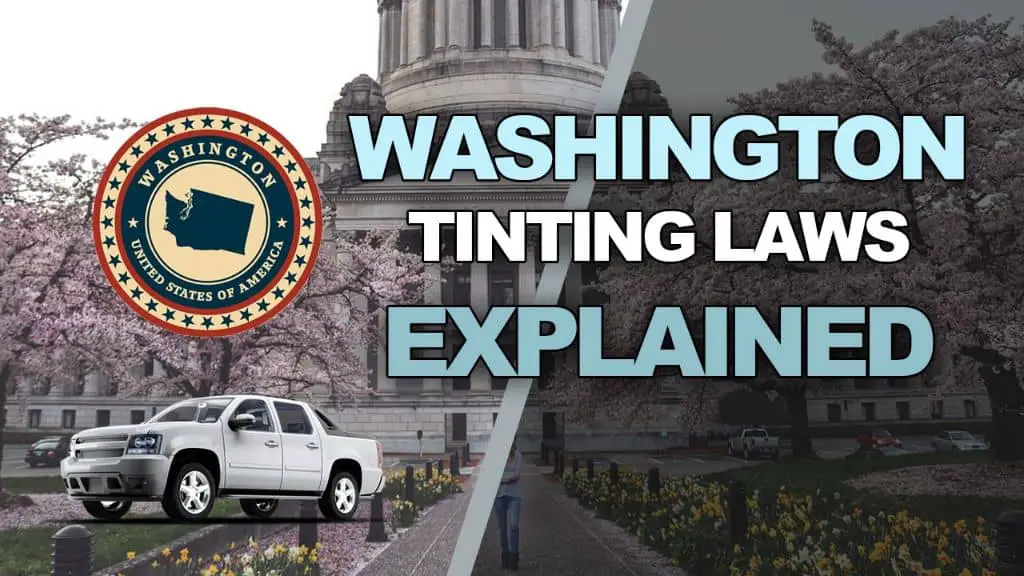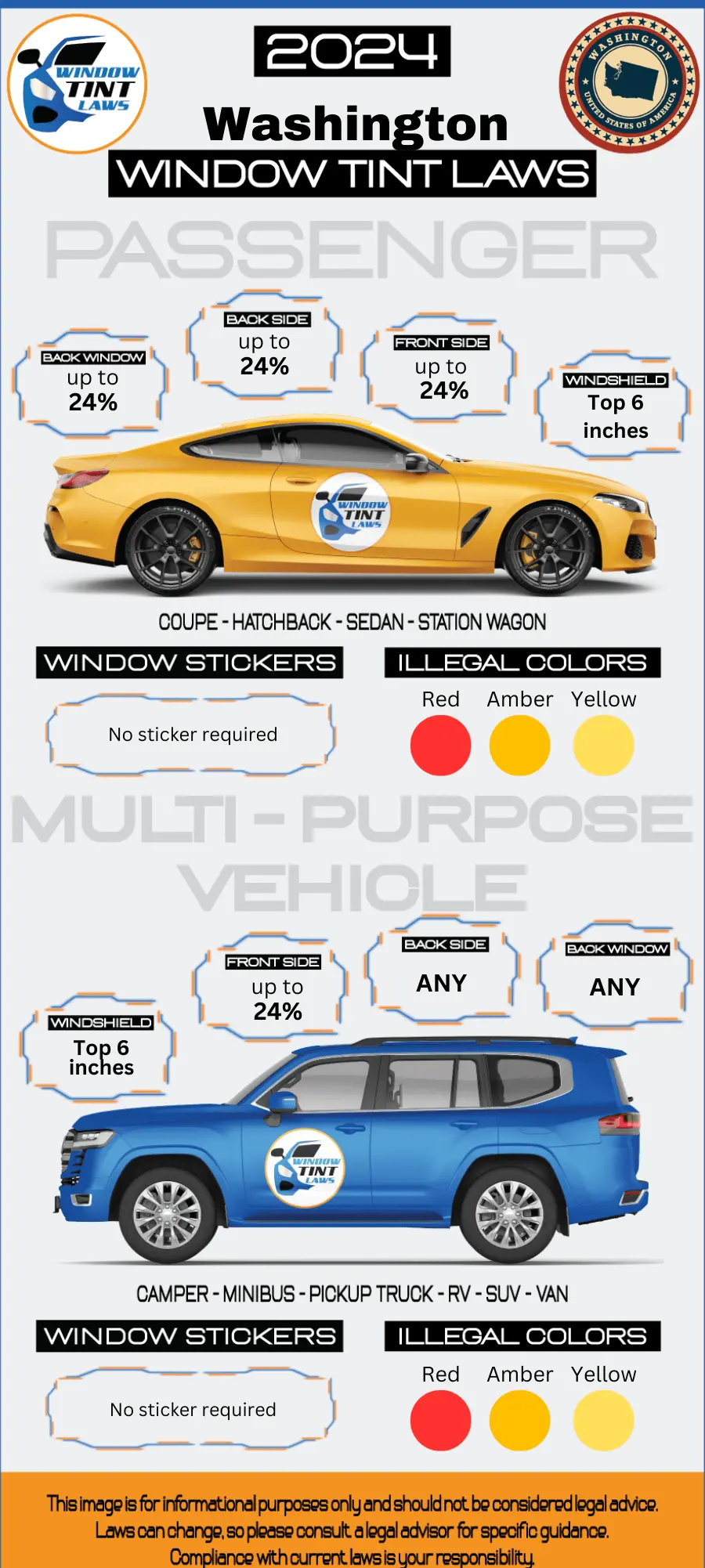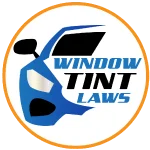

Article Created by Ryan Pietrzak
Last updated on February 5, 2024Washington Tint Laws – 2024 Updated Legal Tint Limit
Please note that Washington Tint Laws Regulation can change daily and may be interpreted differently at the city or county level. We recommend verifying this information with your local DMV or law enforcement agencies. We have manually fact-checked this content using official state resources. Washington enacted tinting laws in 2011. If any information provided is incorrect or outdated, please contact us so we can make the necessary corrections. Thank you.
2024 Washington Tint Laws – Legal Tint Limit For Passenger Vehicles
- Front Windshield: Non-reflective tint is allowed on top 6 inches of the windshield.
- Front seat side windows: up to 24% tint darkness allowed
- Back seat side windows: up to 24% tint darkness allowed
- Rear window: up to 24% tint darkness allowed
2024 Washington Tint Laws – Legal Tint Limit For Multi-Purpose Vehicles
- Front Windshield: Non-reflective tint is allowed on top 6 inches of the windshield.
- Front seat side windows: up to 24% tint darkness allowed
- Back seat side windows: Any tint darkness can be used
- Rear window: Any tint darkness can be used

- Medical exemptions: Washington tint law permits darker tints on front side windows with a doctor’s note
- Washington tint law prohibits metallic or reflective tint on any of the windows
- Washington tint law is statewide with no additional local regulations
- Violating Washington tint laws the cost of a window tint ticket typically amounts to $124. This applies when your window tint is darker than the legal requirements.
What does VLT Mean according to Washington Tint Laws?
- Window tint film’s light transmission is measured as VLT (Visible Light Transmission) and each state has its own legal limits for VLT on car windows.
- A HIGHER VLT means that more light is allowed to pass through the window tint film.
- Example: a 75% tint will allow 75% of the light to pass through whereas a 5% tint will only allow 5% of the light to pass through, making the 5% tint a much darker film.
- Washington window tint laws has specific VLT limits for Passenger Vehicles and Multi-Purpose Vehicles.
FAQ’s Regarding Washington Tint Laws and Washington Legal Tint Limit
What is the darkest legal tint in Washington?
In Washington, the darkest legal tint for car windows depends on the type of vehicle. For sedans, the darkest legal tint allows more than 24% of light in for all windows, including the front side, back side, and rear windows. For SUVs and vans, the same 24% limit applies to front side windows, but any darkness can be used for back side and rear windows. In both cases, a non-reflective tint is allowed on the top 6 inches of the windshield
Are police exempt from window tint laws in Washington?
In Washington, the side and rear windows of law enforcement vehicles are exempt from the standard requirements for window tinting as specified for other vehicles. However, it’s important to note that when these law enforcement vehicles are sold to private individuals, they must comply with the standard window tinting requirements as set for other vehicles. This exemption for law enforcement vehicles is specifically mentioned in the Revised Code of Washington (RCW 46.37.430) which outlines the regulations for safety glazing and sunscreening on vehicles. It ensures that law enforcement vehicles can have different window tinting for operational reasons, but these exemptions are not extended to private ownership of the same vehicles.
How do I get a tint waiver in Washington?
To obtain a window tint waiver in Washington due to medical reasons, you need to provide a written statement from your doctor outlining your medical condition and the need for tinted windows. This statement should be presented to the Washington State Department of Licensing for review and approval. Once approved, you will receive a waiver that allows you to have your windows tinted beyond the standard legal limits
How much is a tint ticket in Washington?
In Washington, the cost of a window tint ticket typically amounts to $124. This applies when your window tint is darker than the legal requirements.
Can you get pulled over for tint in Washington?
Yes, in Washington, you can be pulled over solely for having tinted windows that don’t comply with the state’s regulations. This is considered a primary offense, meaning it’s a sufficient reason for a traffic stop by itself. Police officers in Washington are equipped with devices to measure the darkness of your window tint. If your tint is found to be darker than what is legally allowed, you may be subject to a fine of $124
How to get a Tint Exemption in Washington
All windows and the top 6 inches of the windshield may have greater light reduction under a medical exemption. Written verification from a licensed physician must be in the vehicle, stating that the operator or passenger must be protected from exposure to sunlight for physical or medical reasons.

Ryan Pietrzak
Creator of Windowtintlaws.us
